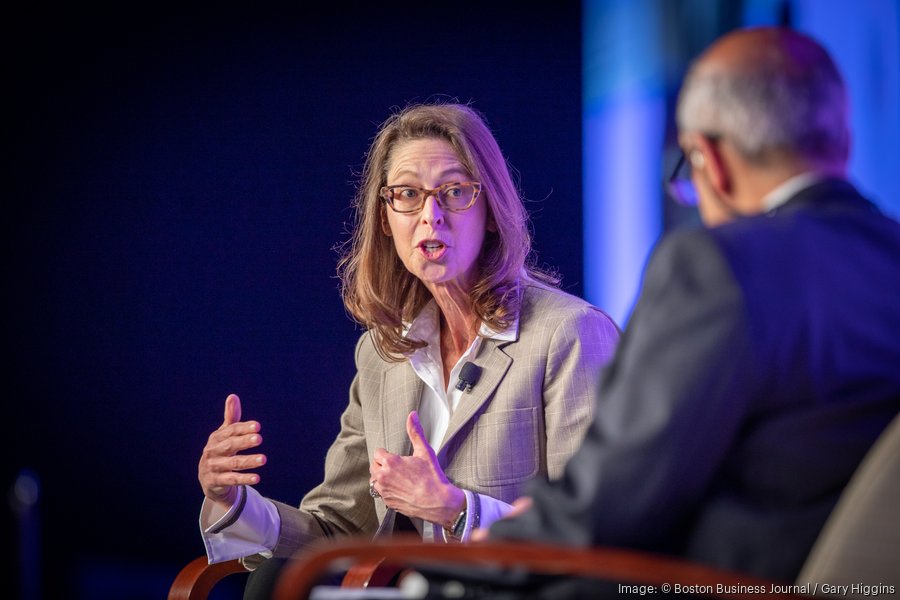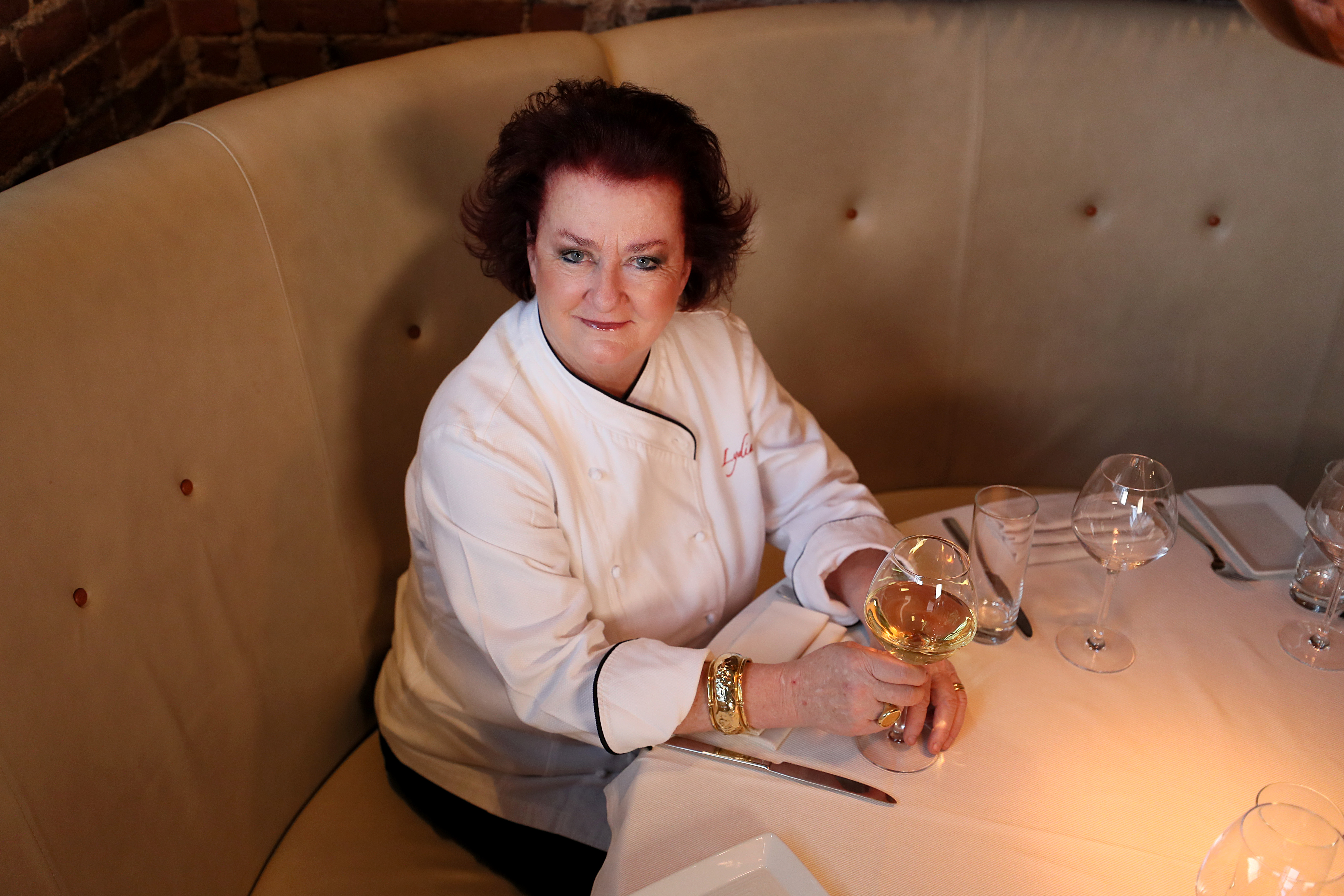Boston Mayor Michelle Wu announced a major, $67 million investment to create and preserve 802 affordable housing units in the city at a press conference Thursday morning.
Wu made the announcement in front of the Old Blessed Sacrament Church on Centre Street in Jamaica Plain, a now empty church that will be converted into a 55-resident mixed-use mixed-income housing development. She said that development will be one of 17 projects across the city aimed at helping residents "stay and thrive" in Boston.
WATCH ANYTIME FOR FREE
Stream NBC10 Boston news for free, 24/7, wherever you are. |
She said the new affordable housing units will touch eight neighborhoods, including Allston, Chinatown, Dorchester, Jamaica Plain, Mattapan, Mission Hill, Roxbury and South Boston. They will be funded using federal recovery dollars and other money connected to development in the city.
"This is exactly what we want to see all across the city," Wu said. "Treasured community spaces maintained and expanded in ways that match the needs of our community today."
Get updates on what's happening in Boston to your inbox. Sign up for our News Headlines newsletter.
Of the 802 units, 160 will be income-restricted housing for seniors.
"We're very grateful to have a once-in-a-generation opportunity to show how much impact happens when you invest in housing across the entire community," she added.
The full list of affordable housing projects, courtesy of the city, includes:
ALLSTON
- The Allston Brighton Community Development Corporation’s renovation of the Brian Honan Apartments will be made possible with $1,500,000 in funding. This preservation project will implement a green-energy retrofit to renovate 50 income-restricted units in several townhouse-style buildings, which will extend their existing 30 year housing restriction to be in perpetuity.
CHINATOWN
- The Asian Community Development Corporation’s using $11,803,510 in funding will redevelop Parcel R-1 to create 66 units of income-restricted rental housing and 44 units of income-restricted homeownership on the parcel with 17,700 square feet for a new Chinatown branch of the Boston Public Library.
DORCHESTER
- Dorchester Bay EDC and the Preservation of Affordable Housing will renovate the historic Dorchester Saving Bank in Uphams Corner and create Columbia Crossing, a mixed-use, mixed-income development, which will create 48 income-restricted rental apartments and approximately 3,500 square feet of community space and below-market commercial space. Columbia Crossing will also designate twenty percent of the units to be set aside for artists' work-live spaces. The project will be made possible with $3.9 million in funding.
- DVM Consulting will transform five vacant City-owned parcels located along a stretch of Blue Hill Avenue in Dorchester and Mattapan into twelve units of income-restricted rental housing, eighteen income-restricted homeownership opportunities, and 3,300 square foot first-floor commercial space made possible with $5,056,138 in funding. Two of the new first-floor income-restricted rental units will be set aside as artists' live/work spaces.
JAMAICA PLAIN
- Pennrose Development and the Hyde Square Task Force will redevelop the former Blessed Sacrament Church with $6.25 million in funding. The development team will create 55 mixed-income units of rental housing and a new performance space for the Hyde Square Task Force Creative Arts Program.
- The Jamaica Plain Neighborhood Development Corporation will redevelop the Boston Housing Authority's Mildred Hailey Housing’s Phase 2 with $5.2 million in funding. This phase includes demolition and abatement of two existing buildings to create a new 6-story, 100% income-restricted, 65-unit building, consisting of 23 public housing replacement units and 42 new units of income-restricted housing restricted at 60% of AMI or below.
- Urban Edge Community Development Corporation will redevelop the Boston Housing Authority's Mildred Hailey Housing Phase 3 with $4 million in funding. The development project includes demolition and abatement of the existing building to create a new six-story building with 60 units of income-restricted rental housing with 22 of the units being BHA housing replacement units, in addition, 38 of the new income-restricted housing units are restricted at 60% of AMI or below.
MATTAPAN
- 2Life Development, Inc. will construct Brooke House at Olmsted Village, a 125-unit mixed-use building with senior supportive housing, live-in property management, staff, a child care center, a health care center, a community space, and a small convenience store utilizing $6 million in funding. This will be the first building in the final phase of the redevelopment of the Mattapan State Hospital campus.
MISSION HILL
- The Roxbury Tenants of Harvard will develop 775 Huntington, a new 12-story, mixed-use, mixed-income, transit-oriented development with 81 income-restricted units of housing, including 57 rental units, 24 homeownership units, and first-floor commercial spaces and utilizing $6 million in funding.
ROXBURY
- The Madison Park Community Development Corporation and the Urban League of Eastern Massachusetts will demolish the existing vacant building and create 84-88 Warren Street, a 43-unit mixed-income rental housing and a 22-unit income-restricted homeownership development, as well as a modernized office and meeting space for ULEM. This funding for 84 to 88 Warren Street is for 58 new income-restricted units made possible with $6,143,229 in funding.
- Nuestra Comunidad Development Corporation will create Copeland Corner, a 12-unit mixed-income ownership development with 6 income-restricted units of homeownership in Roxbury with $1,918,730 in funding.
- Trinity Financial and Madison Park Community Development Corporation will develop 2085 Washington Street, the third phase of the Parcel 10 redevelopment in Nubian Square, which will create a total of 96 units of income-restricted housing utilizing $4.5 million in funding. The project will create a 7,000 square foot mixed-use development with 64 units of income-restricted rental housing, 32 mixed-income homeownership opportunities, and first-floor commercial space, along with approximately 25 parking spaces. This third phase of funding will be used to create the 32 units of income-restricted homeownership.
SOUTH BOSTON
- The South Boston Neighborhood Development Corporation will redevelop the existing McDevitt Hall, a former convent, into the McDevitt Senior Homes, creating 36 units of income-restricted senior rental housing for people aged 62 and over, and one resident manager unit. This project will be made possible with $5,145,000 in funding. This project will also create new program spaces for the Paraclete Center, allowing the Paraclete Center to continue to offer after-school programs in South Boston that ensure excellence through education for students in 3rd to 8th grade.
Thursday's announcement comes just days after the mayor announced her plan on rent control, which would limit rent hikes to 6% and would cap them at 10%. Wu's plan also puts additional provisions in place to protect renters from eviction.
Wu sent the Boston City Council a home rule petition on Monday that requires approval by both local and state policymakers. She said in a letter to councilors that advertised rents across Boston increased by 14% in 2022, with some specific neighborhoods experiencing jumps in rent exceeding 20%.
"This Home Rule Petition will enable the City of Boston to implement rent stabilization to better protect families from displacement caused by exorbitant increases in rent," Wu wrote. "The measure would place needed limits on rapid rent increases to existing tenancies and ensure more stability for Boston residents by providing a level of certainty regarding how much their rent could increase each year. Tenants in Boston are often victim to steep rent increases, making it impossible for them to stay in their homes."
Landlords in several instances would be exempt from the cap on rent increases. No limit would apply when a new tenant moves into a residence and a landlord sets an initial rental rate, and the cap would only kick in for subsequent hikes.
Any property with six or fewer units, one of which is the building owner's primary residence, would not be subject to the rent control policy. That's a change from an earlier draft, which would have exempted owner-occupied properties with three or fewer units.
Preventing the cap from applying to the newest housing construction, dwellings would not face a cap on rent increases if their permanent occupancy certificates are less than 15 years old and they were built from the ground up, added to an existing building or converted from another use to residential.
Units where tenants pay a set percentage of their income to rent, such as public housing and those supported by vouchers, would also be exempt from the rent control, as would hotels and motels, housing in religious facilities, extended care, residential care and nonprofit hospitals, college and university dormitories, and dwellings where tenants share bathroom or kitchen accommodations with the owner.
Wu said she modeled her proposal to revive rent control within city limits on "successful policies" already in place in California and Oregon. Several other major American cities have some form of rent control on the books.
Rent control has been banned in Massachusetts since voters approved a 1994 ballot question, backed by the Small Property Owners Association. At the time, only Boston, Brookline and Cambridge had rent control in place, and a majority of voters in each of those three communities supported keeping the policy.
State House News Service contributed to this report.




